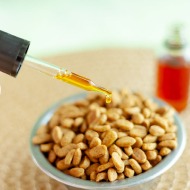
RVC research highlights importance of diets in treatment
A new study by the Royal Veterinary College has shown that a simple dietary change can improve seizure control and cognitive impairments for dogs with hard-to-treat epilepsy.
Current treatments for canine epilepsy focus on managing the condition and reducing how often seizures occur. However, recent research has shown that epileptic dogs commonly experience cognitive difficulties, such as memory problems and anxiety.
As part of the new study, a team of researchers from the Royal Veterinary College (RVC) and the University of Veterinary Medicine Hannover (TiHo) tested the effect that an oil supplement had on seizure frequency in dogs with drug-resistant epilepsy.
Previous research by the RVC has shown that oil supplements containing a specific type of fat known as medium chain triglycerides (MCT), could have a significant impact on dogs with hard-to-treat epilepsy.
According to the RVC, this new controlled clinical study used non-invasive cognitive tests, as well as a validated psychometric tool to show that dogs had improved spatial and working memory when treated with MCTs.
Dr Rowena Packer, lecturer in Companion Animal Behaviour and Welfare at RVC, commented on the ground-breaking nature of the study and how this step forward had revealed “a promising way to boost the impaired memories of these patients and reduce their seizure frequency, by a simple dietary change.”
Professor Holger Volk, department chair for Small Animal Diseases at TiHo, added: “This study highlights the importance of diets and the power of the gut-brain axis.
“We are just at the beginning of understanding how diets can influence complex diseases such as epilepsy and dementia. MCT oil could offer a promising addition to our management tool-kit.”
The study, which was funded by the American Kennel Club Canine Health Foundation, is available to read in Epilepsy & Behavior.



 The Animal and Plant Health Agency (APHA) has updated its online reporting service for dead wild birds.
The Animal and Plant Health Agency (APHA) has updated its online reporting service for dead wild birds.